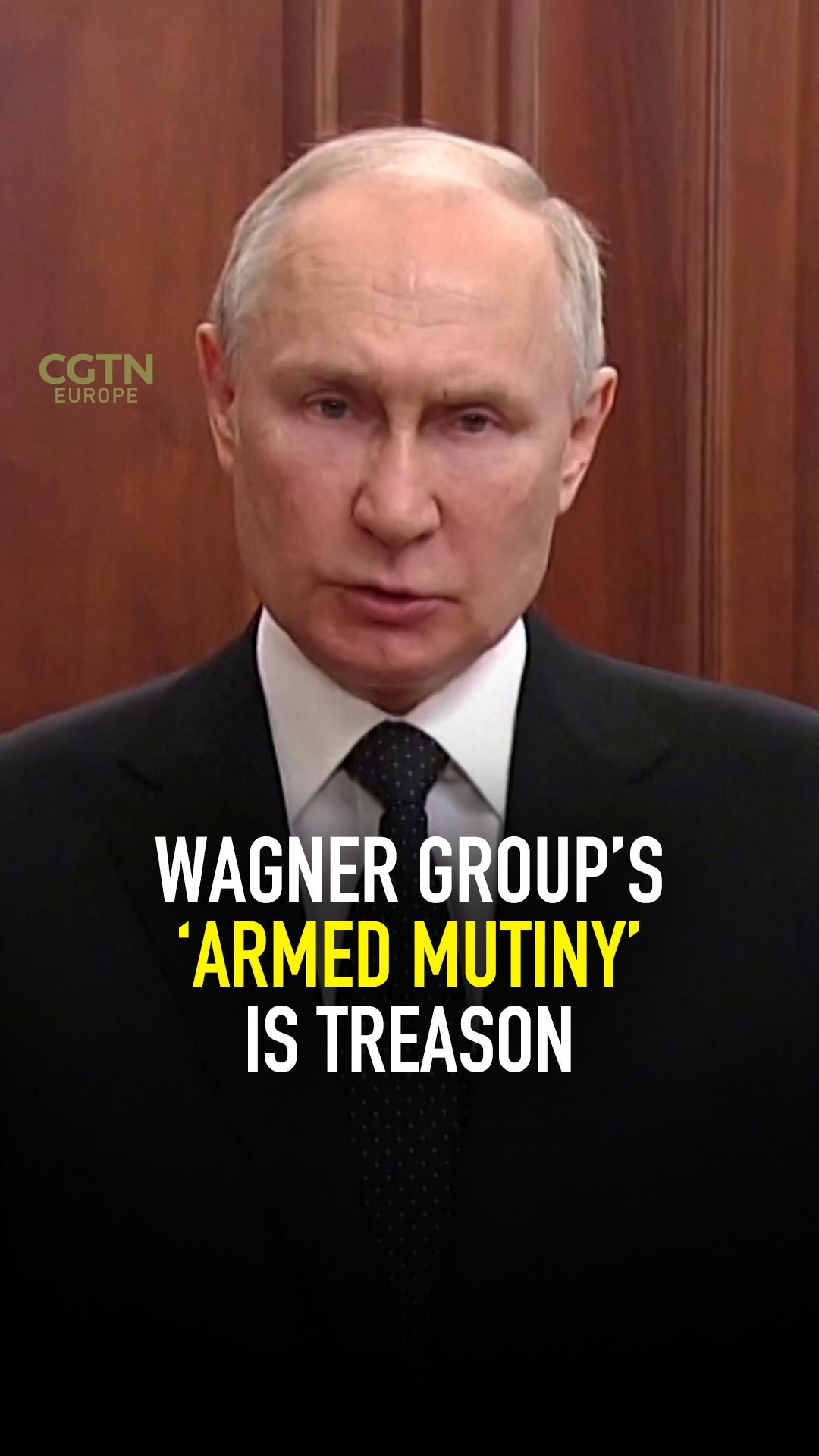
President Vladimir Putin has been speaking to his allies by phone amid the mutiny of Wagner mercenary forces in Russia. /Russian Ministry of Foreign Affairs/via telegram
President Vladimir Putin has been speaking to his allies by phone amid the mutiny of Wagner mercenary forces in Russia. /Russian Ministry of Foreign Affairs/via telegram
The President of Belarus Alexander Lukashenko is claiming the Wagner Group has agreed to de-escalate and stop its troops moving across Russia. The office of Lukashenko said that he had brokered a deal with mutinous Russian mercenary leader Yevgeny Prigozhin, in a post on its official telegram account.
The conversation between Prigozhin and Lukashenko is believed to have been sanctioned by Putin. There has been no confirmation from the Kremlin but Reuters reported that Prigozhin has released a voice message saying to avoid 'bloodshed' he has ordered his troops to return to their bases.
President Vladimir Putin spoke directly to several of his allies by telephone on Saturday in a bid to reassure leaders with close ties to the Kremlin over an armed mutiny launched by Russia's Wagner Group.
Speaking in an emergency televised address on Saturday, Putin described the Wagner Group's overnight bid to seize Rostov-on-Don and summon Moscow's military commanders as "treason," saying anyone who had taken up arms against the Russian military would be punished.
After his address, he discussed the situation with President Recep Tayyip Erdogan by phone.
The Kremlin later said that the Turkish leader had backed the Russian government's handling of the mutiny during the conversation.
READ MORE
Wagner soldiers head for Moscow as Putin vows to crush 'mutiny'
What is the Wagner Group and who is its leader?
The Windrush generation's long journey to justice
00:40

The Turkish presidency briefed separately that the two had discussed the developments, Erdogan telling the Russian president that Ankara was ready to do its part to help bring about a peaceful resolution.
"In the conversation, it was emphasized that no one should exploit the situation in Russia," it said.
Putin also spoke with Belarus's President Alexander Lukashenko, Kazakhstan's Kassym-Jomart Tokayev, and Uzbekistan's Shavkat Mirziyoyev, the Russian leader's closest regional allies.
Belarus' Security Council stressed that Minsk - which has allowed Moscow to launch troops into Ukraine from inside its border - remained an ally, warning that internal disputes were "a gift to the collective West."
The Kazakh president's office said Tokayev noted the events were "an internal affair of Russia."
Vowing to crush an armed mutiny he compared to Russia's Civil War a century ago, Putin is facing the first serious challenge to his power of his 23-year rule.
However, the Wagner mercenary's mutiny comes amid a complete breakdown in support and communication between the Russian leader and many of his Western counterparts.
Western response
While the majority of Western states remained quietly diplomatic on the developments in Russia, Ukraine's President Volodymyr Zelenskyy celebrated the drive to oust Moscow's military command as a sign of the country's weakness.
"Anyone who chooses the path of evil destroys themselves," said the leader on Saturday. "For a long time, Russia used propaganda to mask its weakness and the stupidity of its government. And now there is so much chaos that no lie can hide it."
"Russia's weakness is obvious. Full-scale weakness," he added.

Ukraine's President Volodymyr Zelenskiy said the mutiny in Russia showed the country was weak. /Fabrizio Bensch /Reuters
Ukraine's President Volodymyr Zelenskiy said the mutiny in Russia showed the country was weak. /Fabrizio Bensch /Reuters
The White House said U.S. President Joe Biden had been briefed on the situation and spoken with the leaders of France, Germany and the UK, who had reaffirmed their "unwavering support" for Ukraine.
A NATO spokesperson said the Western military alliance was "monitoring the situation," while both Germany and the UK's government crisis teams met on Saturday.
British Prime Minister Rishi Sunak told the BBC after the emergency COBRA meeting that he was "keeping a close eye on the situation as it is evolving on the ground as we speak... the most important thing I would say is for all parties to be responsible and to protect civilians."
Commenting on developments in the field, Britain's defense ministry had earlier reported that Wagner troops in Russia were "almost certainly aiming to get to Moscow."
Russia's neighbors, Ukraine's allies
Countries that neighbor Russia but who support Ukraine in the conflict, including Poland, Estonia, and Latvia said they had strengthened their border security. Latvia added it had blocked visa and border entry to Russians amid the escalation.
Czechia's foreign minister Jan Lipavsky warned of "the possible threat of erosion of the security situation" in Russia, "especially for citizens of EU and NATO countries."
Lithuania's President Gitanas Nauseda said that the situation would only encourage NATO to strengthen its "deterrence and forward defense capabilities": "Today's events in Russia may mean a moment of respite for Ukraine. For us, it is necessary to prepare for the most unexpected scenarios."

Subscribe to Storyboard: A weekly newsletter bringing you the best of CGTN every Friday
Source(s): Reuters